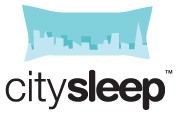2018 is the year to strengthen your hotel’s brand authority. A strong brand authority creates trust, leads to higher engagement and the opportunity to earn more revenue from loyal guests.
A major factor in driving this growth is making sure that you are found by travelers looking to navigate the Internet, searching for a hotel that meets their particular needs.
To ensure your approach to being found is effective you need to integrate Search Engine Optimization or SEO with a comprehensive digital marketing plan.
Without a proper SEO plan a website will be invisible to visitors. Adding proper structure to your content and understanding the limitations of search engines will help you build and format content effectively for your target audience.
SEO refers to the techniques that help your website rank higher in organic (or “natural”) search results, therefore making your website more visible to prospective customers who are at an early stage of their buying journey, looking via search engines like Google, Bing, and Yahoo, etc.
Rand Fishkin, founder and former CEO of Moz, defines SEO as "the practice of increasing the quantity and quality of the traffic that you earn through the organic results in search engines" (Moz). He also says "...that in order to be successful at SEO you need to be clear about who your target customer is, who influences them and what channels you need to use to reach them..."
Search queries are the words typed into the search engine query box and they tend to be:
- I want to do something? (“Do” - transactional queries)
- I need to go to? (“Go” - navigational queries)
- I need to know how to do this! (“Know” - informational queries)
So how do search engines work?
The search engine spiders crawl the Internet and decipher the content you place on your website pages. They then index what they find and store it in a huge database.
A search algorithm, different for each search engine then calculates “relevance + popularity = importance”. The higher your authority means the higher your website will rank in a particular search activity because your content appears to be most relevant to what the visitor is looking for.
To make it easy for visitors and spiders to understand your website content, they track our behavior as “searchers” – how we discover, react, comment and link content and then hold that information stored as a database of keywords indexes and phrases (long tail keywords are more of a sentence or phrase).
To gain the most from SEO you need to adopt a technical approach for your hotel content, that means optimizing the performance of your website by following a structured process.
SEO forces you to:
- Use proper heading tags (H1, H2, H3, etc.) to help keep things clear on your website pages, for the search engine as well as those reading it.
- Write clear and focused headlines that provide a structure to your content, and make it easy to follow or scan.
- Focus your webpages on one particular topic - making sure your headline matches the content.
- Search engines also read content in context so focusing on writing quality and relevance to the search query - means better results for optimisation and conversion.
- And how frequently you update your content matters for both SEO and keeping your site "sticky" to keep interested visitors and interested enough to return.
The future of search
The way we as consumers search is changing rapidly and one of the major disruptors is voice search which already accounts for more than 20% of all searches. This is due to the rise in the number of virtual assistants being bought and the functionality also being added to many of the devices we use everyday such as smartphones, headphones, watches, etc.
The rise in the usage of virtual assistant devices will drive voice search volume, especially with Google, Amazon and Apple all heavily involved and keen to change buyer behavior in search. Which means the way we optimize our website pages is also changing as search engines cater for this new more human-like way of a conversational search, rather than just relying on keywords and backlinks.
Content marketing
Content is the magnet that attracts visitors to your website and should be your top priority, with a major focus on the user experience, shareability and context of how it is written.
Providing valuable, fresh and relevant content on a regular basis improves your SEO performance and helps your brand gain visibility.
Gone are the days when SEO activity was all about trying to rank for specific terms or questions on a search engine. Not only does the content have to be high in quality it needs to be distributed where your customers and target audience are digitally hanging out and match the users search intent and provide a positive user experience.
When Google delivers a visitor to your website the bounce rates and time on a site send strong messages in terms of how well the results matched the search. These signals are used by Google to interpret the user experience and will be reflected in search results going forward.
It’s no secret that video is one of the hottest digital marketing trends right now. And not only is YouTube the world’s second largest search engine but mobile search has officially surpassed desktop.
Featured snippets
Featured snippets are the results that are read aloud in response to voice searches, and now that Google has started answering to many questions with featured snippets. Checklists and other forms of bulleted content may end up in Google’s Answer Box, which could provide your brand with high visibility.
Schema.org
Schema will play a bigger role in search visibility. Marking up all sorts of content formats; imagery, video, audio, local, etc. to help bots discover, understand and deliver relevant content to those searching.
Google Home is leading the way in delivering answers to personalized voice queries because of the vast data sets it has access to. Most of the answers the device delivers are based on content marked up with appropriate schema.
Social media
The worlds of SEO and social media marketing are only going to become more intertwined in the future so it is important now to assess how you are managing them.
Social media has become an effective tool to gain customer engagement, especially on Facebook and LinkedIn.
Organic search a recipe for inbound success.
If you put a lot of effort into your content, you’re not only strengthening your brand, you’re improving the user experience of site visitors.
Attracting a high percentage of organic traffic doesn’t happen overnight – but it does have benefits if you have the patience:
- It means you don’t rely solely on any one particular marketing channel for your content distribution.
- It safeguards against the sudden shift in costs if you invest a lot in a keyword / search word advertising.
- And it allows you to acquire loyal customers that find and view your site based on merit and attraction to the content you are producing
The key to SEO: Meaningful content and write for humans not robots :)
Content is a great way to generate and qualify leads. But to be effective you need to do research on the language and terms your ideal customer uses and make your content relevant to the problems or challenges they face.
By creating content that is high quality, compelling, and relevant, you can engage your site’s visitors in a meaningful way and build trust and authority. When content resonates with a visitor, it feels personal and authentic - hopefully to be shared and endorsed.
In today’s marketplace, consumers are far more likely to trust content that is shared or endorsed by a third party rather than sourced directly from a corporate site. This is of course the value that the review sites have in the role that they place as an unbiased advisor.
Keyword tips.
We'll always need to use written language for search queries because search engines store keyword-based indexes - rather than the 25 billion+ web pages.
These stored keywords are the words that your target audience use to search; they serve as a foundation for your website pages content and are used throughout your site – in the pages title, headings, text, etc.
The goal is not to rank highly for all keywords; just those that people are searching for relevant to the unique selling proposition that your property offers. Keeping in mind that the more specific your selection of long tail keywords is the narrower the results will be but hopefully convert better.
Select Keywords that:
- Have a high search volume
- Have low competition amongst other websites
- Are relevant to your content
Site speed
If your website loads slowly, a large portion of visitors will leave. Speed is also a Google search ranking factor and research shows that 40% of people will close a website if it takes longer than 3 seconds to load.
The worst part is that they’ll click the “back” button and choose a different search result (called pogo sticking) that is then taken into consideration on subsequent search results.
How responsive is your website?
Recent changes to technical SEO have revolved around mobile friendliness, where a site needs to be responsive to the device being used providing a positive user experience.
Checklist - Take time to check if your website is hurting your SEO performance.
Assess your hotel website against the following points to see if you are missing an SEO trick which could impact if you site can be found:
- Broken or bad link structure on your site?
- Backlinks (with external sites) that are considered spammy by the search engines i.e. bad habits of buying links
- Blocking factors like flash technology for animation/films on your site – that cannot be read
- Wrong HTML code or no alt text on images on your site
- Lack of keywords on your site or keyword stuffing
- Mixed messages between what your headlines/titles say and the actual content that you have on your site
- Lack of transcripts for video & audio media because the search engine cannot read the images or audio
- Pages that load slowly
- Not mobile responsive
- Ratio of text to images below under 20% or 70%+
- Duplicate content over the site
- That your website pages have human unreadable URLs
Take Away
HappyBooking is first and foremost a property management system. That means they help you with the boring admin and automate tedious tasks giving you more time to focus on your guests. On average HappyBooking customers can get back up to 10 hours per week – think what you could do with that extra time!
Our guest blogger is John Kennedy.
John is a hospitality consultant, dedicated to helping increase revenue through marketing, revenue management and efficient operations. www.kennedyandersson.com
Image source: www.freepik.com



